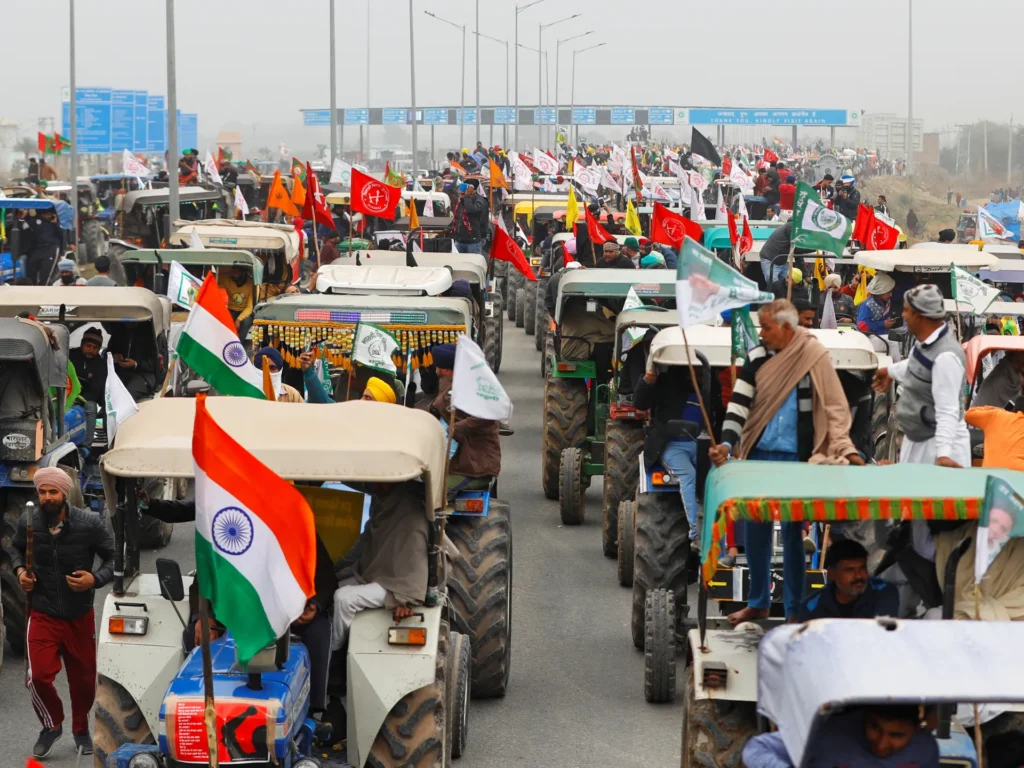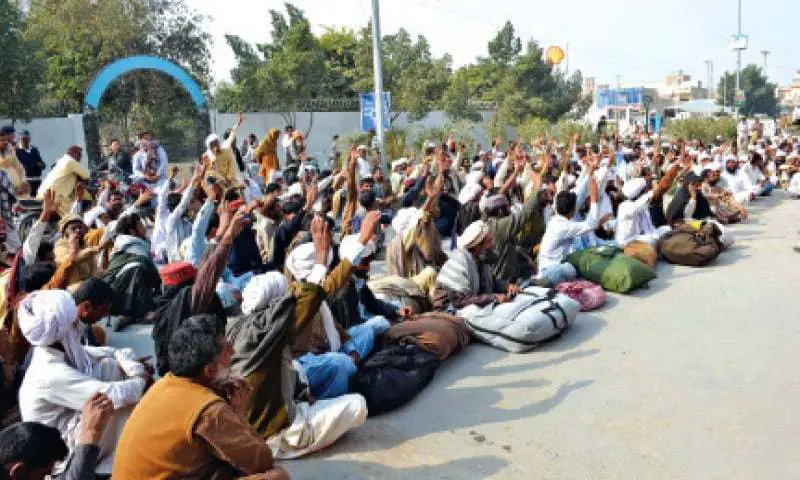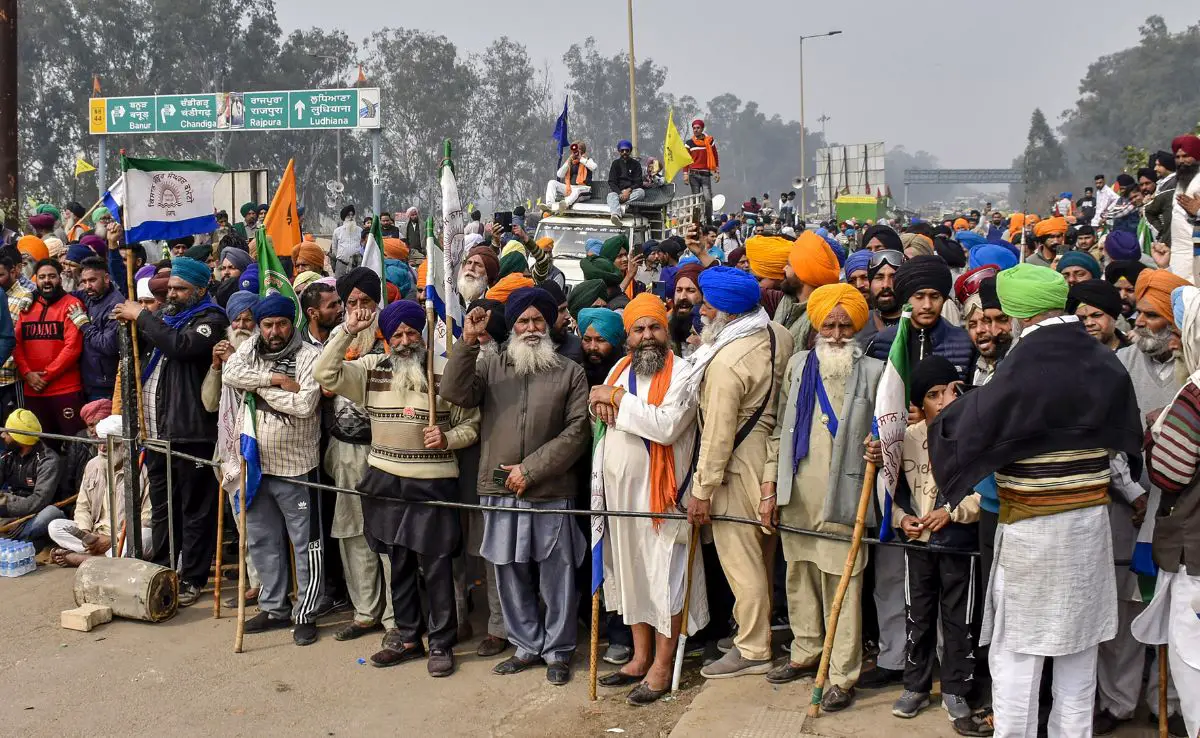In the Subcontinent, where agriculture is a cornerstone employing about 45% of the workforce, farmers’ protests are intensifying. In India, farmers are demanding a legal guarantee for minimum support prices for their produce, among other grievances. These protests have gained momentum as the second phase of general elections in India approaches, with farmers occupying railway tracks and disrupting operations. Despite the Indian government’s reluctance to meet their demands, the farmers are determined to press on, raising concerns about the impact on the political landscape. Led by Sardar Zafar Hussain, the President of the Kisan Board Pakistan, farmers in Pakistan are gearing up for province-wide protests against the government’s wheat procurement target and grain support price in Pakistani Punjab. They demand an increase in the support price from Rs3,900 to Rs5,000 per 40kg and a procurement target of at least five million tons of wheat, accusing the provincial government of deliberately delaying the procurement campaign, leading to a decline in wheat prices in the open market.
INDIA
India’s agricultural sector employs approximately 250 million people, representing about 45% of the country’s workforce. The farmers’ primary demand is for guaranteed minimum support prices (MSP) across all agricultural commodities, with the MSP set at least 50% higher than their production costs. This demand reflects the challenges faced by Indian farmers, who often struggle with low incomes and mounting debts.
The ongoing protests in East Punjab, a key agricultural state in India, have gained momentum as the second phase of the country’s general elections begins. Farmers are calling for a legal guarantee for MSP for their produce, among other demands. Their protests have disrupted railway operations in Punjab, with trains on 149 routes either being cancelled, diverted, or terminated midway.
Despite the farmers’ strong stance, the Indian government has shown no signs of yielding to their demands. This stance comes at a critical time for Prime Minister Narendra Modi, who is seeking a third term in the national elections. The government’s handling of the farmers’ protests has raised concerns about its support among the farming community, which constitutes a significant voting bloc.

The issue of MSP has become a central theme in the election campaign, with opposition parties including the Congress highlighting the farmers’ demands in their manifestos. In contrast, the ruling Bharatiya Janata Party (BJP) has refused to acknowledge the demand for MSP, which could have electoral implications.
Public opinion on the farmers’ protests is divided, with a survey showing that 59% of respondents view the farmers’ demands as genuine, while 16% consider the protests a conspiracy against the government. The BJP’s high-handed approach to the protests has led to sympathy for the farmers’ cause among the public.
Despite the widespread support for the farmers’ demands, experts believe that the ongoing agitation is unlikely to significantly impact the BJP’s electoral prospects. The party is projected to win the national elections, according to several surveys.
Overall, the farmers’ protests in India highlight the challenges faced by the agricultural sector and the complex dynamics of agrarian politics in the country. The outcome of the protests and their impact on the election results remain uncertain, but they underscore the importance of addressing the issues facing Indian farmers.
In conclusion, the farmers’ protests in Indian Punjab are a reflection of the deep-rooted challenges in India’s agricultural sector. The government’s response to these protests will not only shape its relationship with the farming community but also have broader implications for the country’s agrarian economy.
PAKISTAN
In Pakistan, farmers are encountering significant challenges related to wheat procurement targets and support prices, particularly in West or Pakistani Punjab. The Kisan Board Pakistan, a leading farmers’ organization, has voiced strong opposition to the government’s handling of these issues, leading to threats of province-wide protests.
One of the primary concerns is the government’s low wheat procurement target, which farmers argue is insufficient to stabilize the local market. The Kisan Board Pakistan is demanding a substantial increase in the official support price for wheat to ensure that farmers receive fair compensation for their produce. They believe that enhancing the procurement target is crucial to prevent a further decline in grain prices in the open market.

The farmers’ discontent stems from the government’s perceived delay in initiating the wheat procurement campaign, which has contributed to the current market instability. They argue that the government’s inaction has exacerbated the situation, leading to a decrease in grain prices and affecting farmers’ livelihoods.
Overall, the farmers’ demands in Pakistan reflect a broader struggle for economic stability and fair treatment in the agricultural sector. They are calling for immediate action from the government to address these issues and provide support to ensure the sustainability of agriculture in the country.
Conclusion
Overall, both India and Pakistan are grappling with agricultural issues that have significant implications for their economies and societies. The protests highlight the challenges faced by farmers in both countries and the need for policymakers to address these issues effectively.


